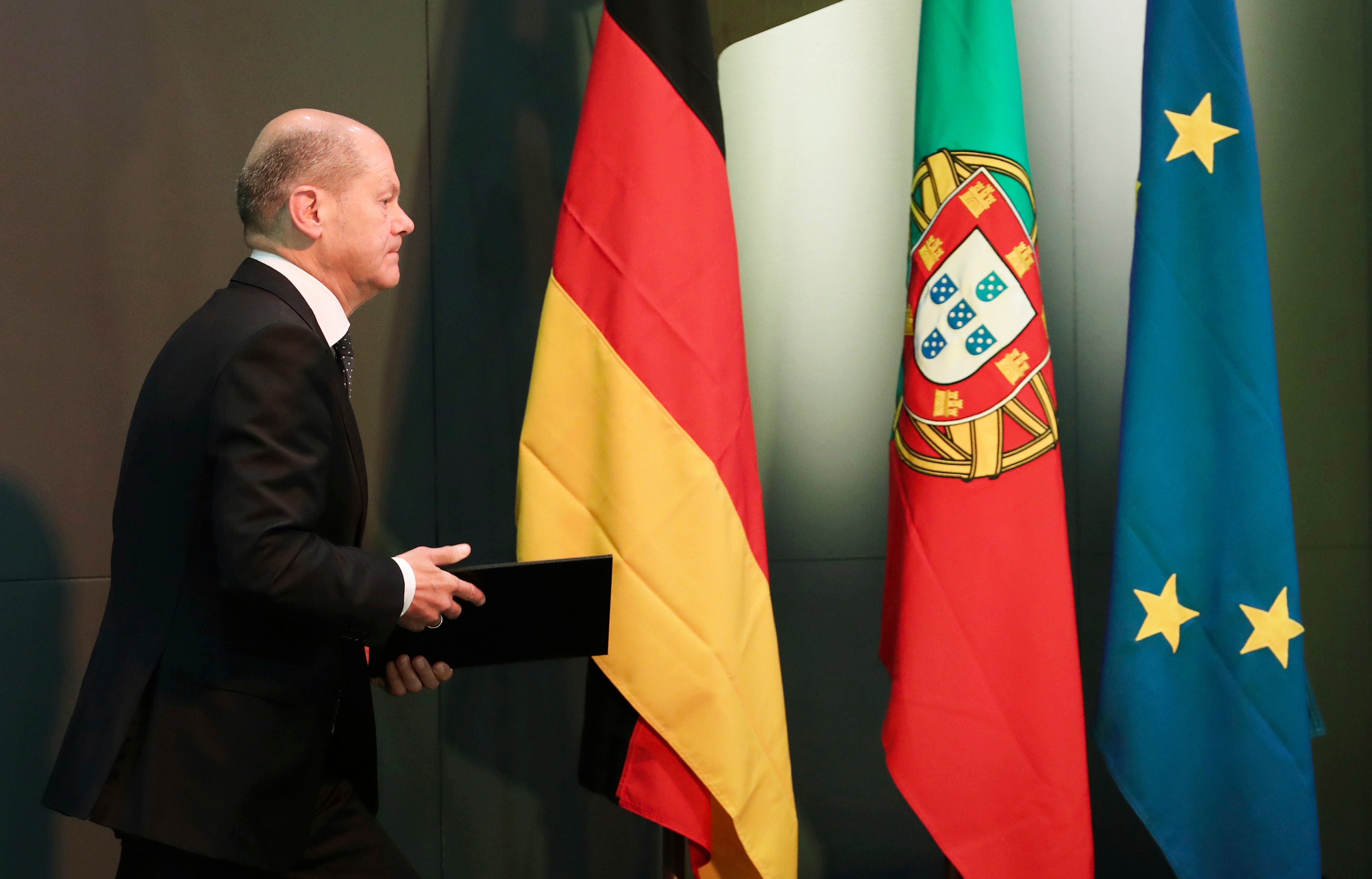German parties reach deal to move ahead with defense boost
Germany’s governing coalition and the main opposition party have reached a deal to move ahead with a big increase in defense spending that Chancellor Olaf Scholz announced three months ago

Your support helps us to tell the story
From reproductive rights to climate change to Big Tech, The Independent is on the ground when the story is developing. Whether it's investigating the financials of Elon Musk's pro-Trump PAC or producing our latest documentary, 'The A Word', which shines a light on the American women fighting for reproductive rights, we know how important it is to parse out the facts from the messaging.
At such a critical moment in US history, we need reporters on the ground. Your donation allows us to keep sending journalists to speak to both sides of the story.
The Independent is trusted by Americans across the entire political spectrum. And unlike many other quality news outlets, we choose not to lock Americans out of our reporting and analysis with paywalls. We believe quality journalism should be available to everyone, paid for by those who can afford it.
Your support makes all the difference.Germany’s governing coalition and the main opposition party have reached a deal to move ahead with a big increase in defense spending that Chancellor Olaf Scholz announced three months ago.
Scholz said three days after Russia invaded Ukraine on Feb. 24 that Germany would commit 100 billion euros ($107 billion) to a special fund for its military and raise its defense spending above 2% of gross domestic product, a measure on which it had long lagged.
Scholz wanted to anchor the special fund in the constitution. That requires a two-thirds majority in both houses of parliament, meaning that he needed support from the center-right opposition Union bloc.
Talks became mired in details, but the two sides reached an agreement Sunday night that clears the way to bring the fund to parliament.
Among other things, funding for cyberdefense and support for partner countries will come from Germany’s regular budget, not the special fund as some in the governing coalition had proposed. The Union bloc wanted assurances that the fund will be used exclusively for the German military, the Bundeswehr. German defense spending will hit the 2% target “on a multi-year average.”
Scholz welcomed the agreement on Monday.
“The German Bundeswehr will be strengthened,” he said at a trade fair in Hannover, news agency dpa reported. “It will be in a position to fulfill its defense mission better than ever, and it will be able to make its contribution in NATO so that we can defend ourselves any time against attacks from outside.”
“This will contribute to the security of Germany and Europe increasing,” Scholz added. “It is the right answer to the turning point that started with Russia's attack on Ukraine.”
NATO countries slashed their military budgets in the 1990s after the Cold War, but they were spurred back into action when Russia annexed Ukraine’s Crimean Peninsula in 2014. The allies pledged to halt the cuts and move toward spending 2% of GDP by 2024. Germany drew criticism, particularly from the U.S. under former President Donald Trump, for falling short of that target.
___
Follow AP’s coverage of the war in Ukraine at https://apnews.com/hub/russia-ukraine